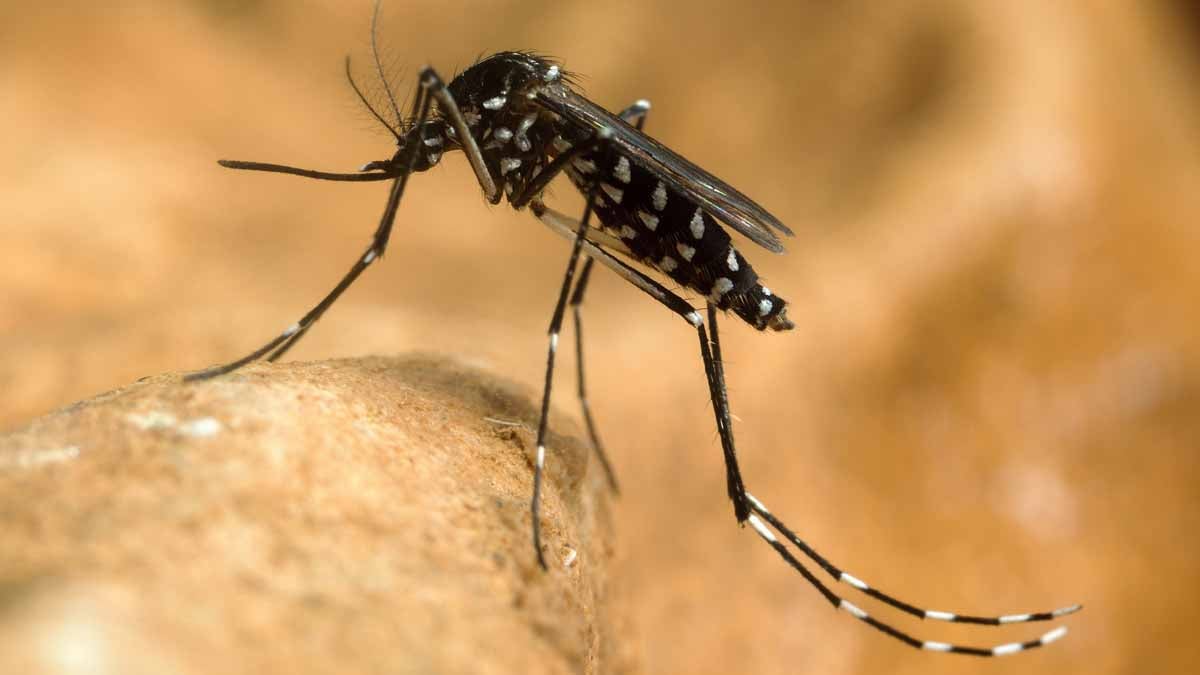Dry weather cuts down on mosquito population, but some still thrive
 Photo via ShutterStock) " title="shutterstock_227529577" width="1" height="1"/>
Photo via ShutterStock) " title="shutterstock_227529577" width="1" height="1"/>
An Asian tiger mosquito doesn't need much water to thrive. (Photo via ShutterStock)
Below normal rainfall in New Jersey this spring means there aren’t many mosquitoes around to spoil your holiday weekend.
Marshlands where mosquitoes breed are dry, and that translates into fewer annoying insects, said Eric Williges, administrator of the New Jersey office of mosquito control coordination.
“Our floodwater populations are very low because we just haven’t any floods,” he said. “Obviously that can all change with a significant rain event, but at the moment our marshes are all very dry.”
But the coast is not completely clear. A black and white variety called Asian tiger does the best in dry conditions, Williges said.
“They do come from smaller containers, such as birdbaths, children’s toys, a sandbox that might be filled with water,” he said. “Even the bottom of flower pots that get too much water in there can produce hundreds and thousands of mosquitoes, and they will definitely attack you.”
Williges advises reducing that threat by emptying the water from those containers about once a week and using a repellant when mosquitoes are around.
County programs will attack newly hatched mosquitoes with biological agents and possible aerial spraying throughout the summer.
WHYY is your source for fact-based, in-depth journalism and information. As a nonprofit organization, we rely on financial support from readers like you. Please give today.




